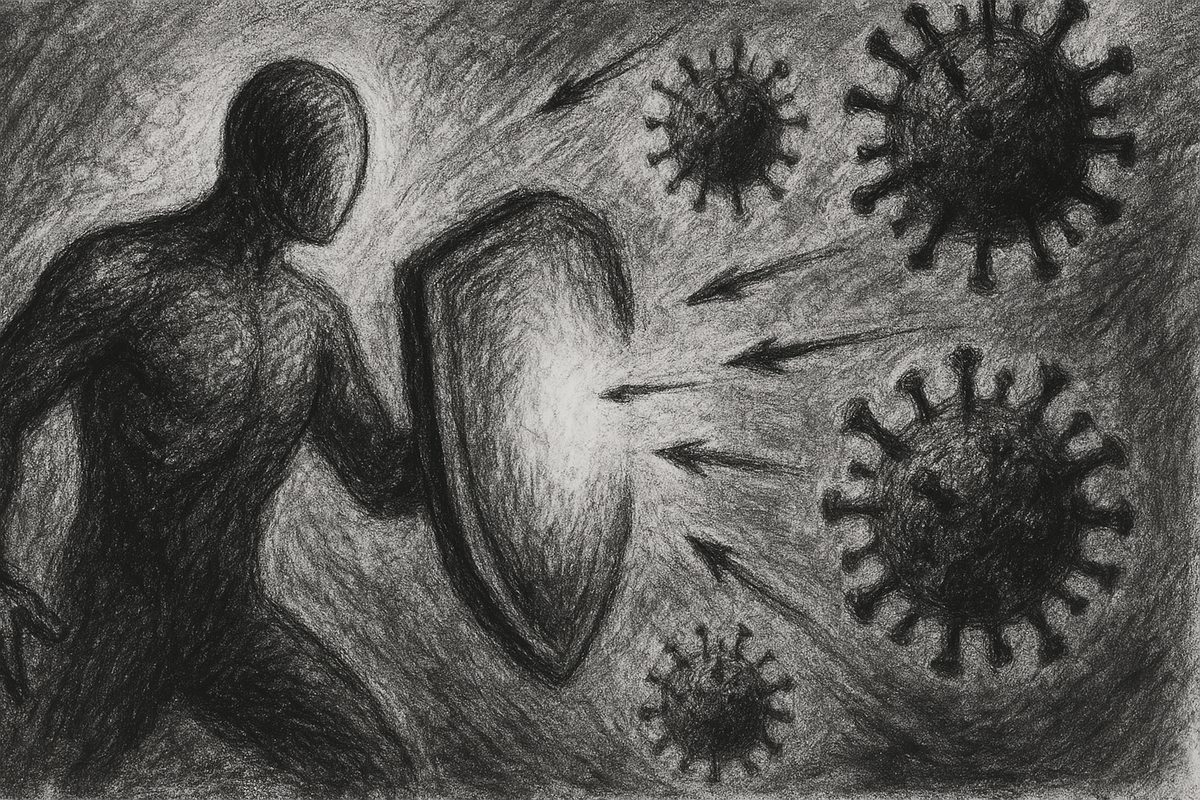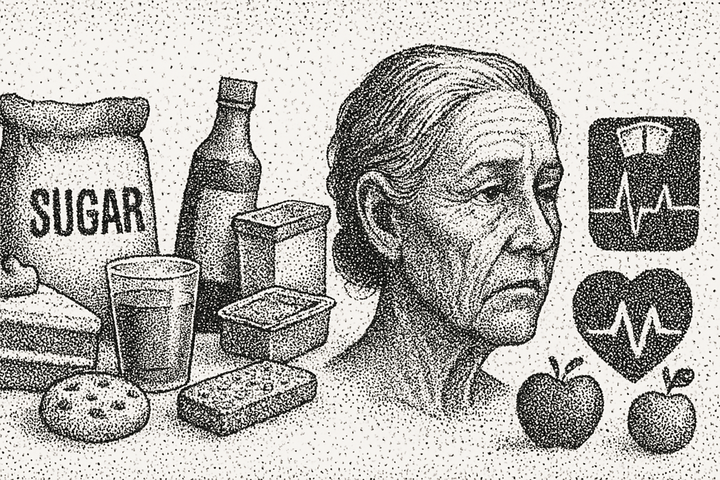Don’t Just Wing It: Science-Backed Ways to Help Your Immune System

Understanding the Immune System
The immune system is a complex network of organs, cells, proteins, and chemicals that defends the body against pathogens, such as bacteria, viruses, and fungi. It plays a critical role in protecting against infections and promoting healing when you're unwell. While the concept of "boosting" immunity is popular, scientific evidence suggests that supporting immune function is a multifaceted process involving lifestyle, nutrition, and preventive measures, rather than a quick fix. This survey note explores evidence-based strategies, drawing from academic sources like Harvard Health, the Centers for Disease Control and Prevention (CDC), Cleveland Clinic, and systematic reviews from scientific journals.
Dietary Strategies for Immune Support
Nutrition is a cornerstone of immune health, providing essential micronutrients that support immune cell function and reduce inflammation. The CDC emphasizes a diet rich in fruits, vegetables, lean proteins, whole grains, and low-fat dairy, while limiting saturated fats, salt, and added sugars (Dietary Guidelines). Specific nutrients with evidence for immune support include:
- Vitamin C: Found in citrus fruits, bell peppers, strawberries, and broccoli, vitamin C is an antioxidant that supports immune cell development. A systematic review found that supplementation can reduce cold risk by up to 45% in men with low status (RR 0.55, p=0.048) and shorten duration by up to 4.9 days in males (p<0.05) (Vitamin C and Colds, Vitamin C Review).
- Vitamin D: Essential for immune regulation, vitamin D is obtained from sunlight, fatty fish (e.g., salmon), and fortified foods. Research suggests it may reduce respiratory infection risk in subgroups, with some studies showing a 46% lower risk (RR 0.54, p=0.007) in lab-confirmed cases, though results are mixed (Vitamin D and Infections, Vitamin D Review).
- Zinc: Found in oysters, meat, poultry, beans, and fortified cereals, zinc is crucial for immune cell function. Systematic reviews indicate it reduces cold risk in children (RR 0.78, p=0.003) and seniors (RR 0.33, p=0.001), with duration reduced by 0.6 days (MD -0.60, p=0.0001) (Zinc and Immunity, Zinc Review).
- Antioxidants: Foods like berries, spinach, nuts, and green tea are rich in antioxidants, which protect immune cells from oxidative damage. Preliminary research suggests green tea's EGCG may have antiviral properties (Green Tea).
A systematic review on dietary supplement ingredients highlights the importance of getting nutrients from food first, with supplements considered for deficiencies (Dietary Supplements Review). However, it cautions against megadoses, as high doses of vitamin E, for example, increased infection risk in seniors (duration 19 vs. 14 days, RR 1.02, p=0.76) (Vitamin E Study).
Table 1: Key Nutrients and Their Immune Support Evidence
Below is a summary of key nutrients, their food sources, and evidence from systematic reviews, including exact numbers where available:
Lifestyle Habits for Immune Support
Beyond diet, lifestyle habits play a significant role in immune health. The CDC and Harvard Health emphasize the following:
- Physical Activity: Regular exercise improves cardiovascular health, reduces inflammation, and enhances immune function. The CDC recommends 150 minutes of moderate aerobic activity weekly, plus two days of muscle-strengthening exercises, with studies showing a 50% lower risk of flu/pneumonia death for those meeting guidelines (Physical Activity Guidelines, Exercise and Immunity).
- Sleep: Sleep loss negatively affects immune function, potentially leading to disorders. Adults need 7-9 hours, children and teens more, with recommendations aligned with CDC guidelines (Sleep Recommendations).
- Stress Management: Chronic stress can suppress immunity by increasing cortisol levels. Techniques like meditation, yoga, and deep breathing are supported by Harvard Health for reducing stress (Stress and Immunity).
- Healthy Weight: Obesity (BMI ≥ 30) is linked to impaired immunity and lower vaccine effectiveness (e.g., influenza, hepatitis B). Safe weight management includes reducing stress, eating healthy, and staying active (Healthy Weight Tips).
- Avoid Smoking and Limit Alcohol: Smoking increases risk for immune problems like rheumatoid arthritis, while excessive alcohol weakens immunity over time. Moderate drinking is defined as up to one drink daily for women and two for men (Smoking and Immunity, Alcohol and Health).
- Vaccinations: Vaccines build immunity against specific diseases, with evidence supporting their role in reducing illness severity. Stay current with recommended vaccines, consulting your provider for timing (Vaccine Benefits).
Table 2: Lifestyle Recommendations and Supporting Evidence
Below is a table summarizing lifestyle recommendations, their impact on immunity, and supporting sources:
Supplements: Evidence and Caution
Supplements can address deficiencies but are not a substitute for a healthy diet. The systematic review from MDPI evaluated eight ingredients, with mixed results:
- Echinacea: May reduce cold risk by up to 30% (RR 0.70, p=0.023) and shorten duration by 1.4 days in children (MD -1.4, p=0.008), but evidence is inconsistent (Echinacea Review).
- Elderberry: One study showed reduced duration (2 days less) and lower severity, but no significant risk reduction (RR 0.69, p=0.298) (Elderberry Study).
- Garlic: Reduced episodes (24 vs. 65, p<0.001) and duration (1.52 vs. 5.01 days, p<0.001), but methodological concerns exist (Garlic Review).
- Vitamin E: Increased infection risk in seniors (duration 19 vs. 14 days, RR 1.02, p=0.76), suggesting potential harm (Vitamin E Study).
Harvard Health cautions against megadoses, noting no evidence that herbs or supplements bolster immunity in healthy individuals (Harvard Health). Always consult a healthcare provider before starting supplements, especially with underlying conditions.
Debunking Myths and Addressing Controversy
The concept of "boosting" immunity is controversial, with much misinformation online. A study analyzing internet content found diet, vitamins, and antioxidants frequently mentioned, but scientific evidence is limited (Internet Analysis). Myths include:
- Supplements as a quick fix: No evidence supports this, and some (like vitamin E) may harm.
- Cold exposure weakening immunity: Moderate cold doesn’t increase infection risk; winter colds are due to indoor contact and virus survival (Cold Exposure).
Conclusion
Supporting immune health involves a holistic approach: a balanced diet rich in key nutrients, regular exercise, adequate sleep, stress management, maintaining a healthy weight, avoiding smoking, limiting alcohol, and staying vaccinated. Supplements may help address deficiencies but should be used cautiously, with professional guidance. By adopting these strategies, you can enhance your body’s natural defenses, promoting long-term well-being. This analysis, conducted as of April 13, 2025, reflects the latest academic insights and is intended for informational purposes, not medical advice.
Key Citations
- How to boost your immune system with diet and lifestyle changes
- Immune-boosting nutrients fight flu - Mayo Clinic Health System
- Healthy Habits: Enhancing Immunity | Healthy Weight and Growth | CDC
- Immune System Function, Conditions & Disorders
- Boosting the Immune System, From Science to Myth: Analysis the Infosphere With Google
- What to Eat and Drink to Boost Your Immune System
- You can’t boost your immune system with supplements—here's what you can do
- Immune-Boosting Foods: Berries, Oysters, & More
- Improve Your Immunity With Diet and Lifestyle Changes
- Select Dietary Supplement Ingredients for Preserving and Protecting the Immune System in Healthy Individuals: A Systematic Review
- A systematic review on immunity functionalities and nutritional food recommendations to develop immunity against viral infection
- Frontiers | A Review on Measures to Rejuvenate Immune System: Natural Mode of Protection Against Coronavirus Infection
- Common foods for boosting human immunity: A review
- Vitamin C and white blood cells preliminary research
- Vitamin D and COVID-19 clinical trials
- Vitamin D deficiency and COVID-19 risk research
- Turmeric and curcumin high concentrations studies
- Green tea and EGCG antiviral properties research
- Mediterranean diet effect on white blood cell counts 2021 study
- Antiviral foods including fermented vegetables research
- Foods helping fight infections herbs and spices study
- Bananas and immune system study in rodents
- Cooking broccoli to retain nutrients research
- Ginger and chronic pain study
- Ginger and cholesterol-lowering properties research
- Spinach and nutrient retention study
- Effect of vitamin A supplementation on childhood morbidity and mortality
- Effect of simultaneous supplementation of vitamin A and iron on diarrheal and respiratory tract infection in preschool children in Chengdu City, China
- The effect of vitamin C on upper respiratory infections in adolescent swimmers: A randomized trial
- Vitamin C supplementation slightly improves physical activity levels and reduces cold incidence in men with marginal vitamin c status: A randomized controlled trial
- Preventing the common cold with a vitamin C supplement: A double-blind, placebo-controlled survey
- Effect of monthly high-dose vitamin d supplementation on acute respiratory infections in older adults: A randomized controlled trial
- Vitamin D supplements for prevention of tuberculosis infection and disease
- Effect of Daily Vitamin E and multivitamin-mineral supplementation on acute respiratory tract infections in elderly persons
- Zinc supplementation decreases incidence of infections in the elderly: Effect of zinc on generation of cytokines and oxidative stress
- A randomized controlled trial of chelated zinc for prevention of the common cold in Thai school children
- Immunomodulatory effect of pleuran (β-glucan from Pleurotus ostreatus) in children with recurrent respiratory tract infections
Disclaimer: This blog post is for informational purposes only and does not constitute medical advice. Always consult a healthcare professional before making changes to your diet, lifestyle, or supplement routine.




Comments ()